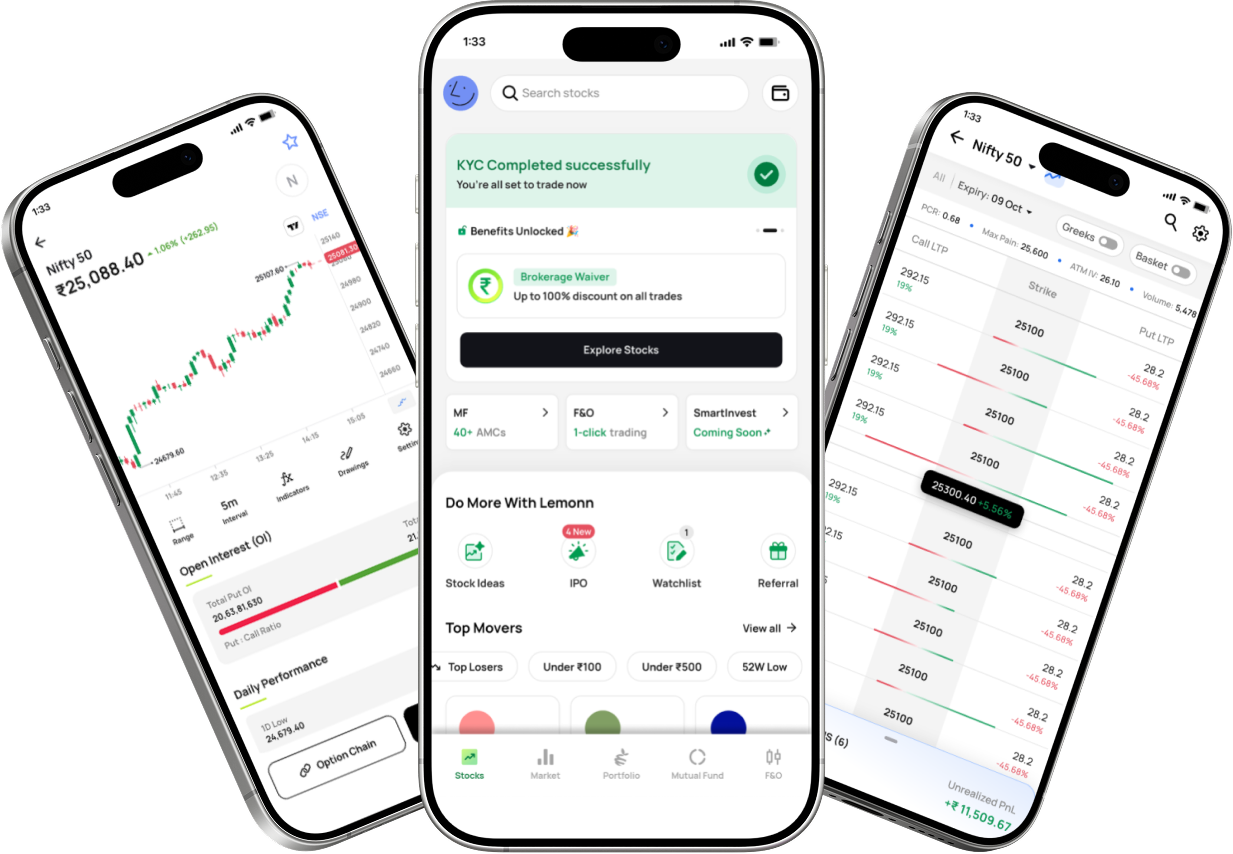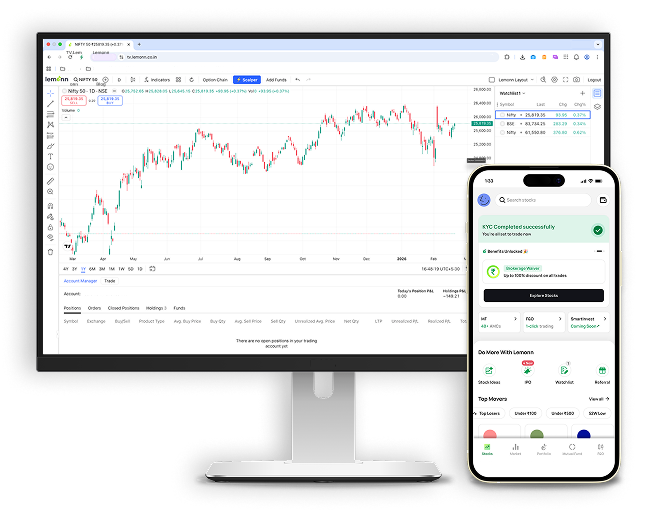Trade & Invest
Learn
Company

FMCG Sector Stocks
FMCG Sector Stocks
FMCG (Fast-Moving Consumer Goods) sector stocks include companies that produce and sell everyday consumer products such as food and beverages, personal care items, household goods, and packaged foods. These products are characterized by their high turnover and frequent repurchase, making the FMCG sector a stable and essential part of the economy. Investing in FMCG sector stocks allows investors to benefit from steady demand and consistent growth.
Filters
COMPANY
PRICE
Introduction to FMCG Sector Stocks
FMCG (Fast-Moving Consumer Goods) stocks play a significant role in the stock market as they represent companies that manufacture and distribute everyday consumer products. These goods encompass a wide range of items such as food, beverages, personal care products, and household essentials. The demand for these consumer goods remains relatively constant, making FMCG stocks appealing to investors seeking steady and predictable growth in their investment portfolios.
Investing in FMCG stocks can provide investors with stability due to the consistent demand for essential consumer products regardless of economic conditions. Companies operating in the FMCG sector often have established brands and loyal customer bases, which can contribute to their resilience during market fluctuations. Additionally, the nature of fast-moving consumer goods ensures frequent purchases by consumers, creating a reliable revenue stream for these companies.
Furthermore, FMCG stocks are considered defensive investments as they tend to perform well even during economic downturns when consumers prioritize spending on essential items. This defensive characteristic makes FMCG stocks attractive for risk-averse investors looking to mitigate volatility in their portfolios.
In conclusion, FMCG stocks offer investors an opportunity to capitalize on the enduring demand for everyday consumer products and benefit from steady growth potential in the stock market.
Why Do Investors Care About FMCG Sector Stocks?
1
Stability
FMCG companies offer stability as they produce essential goods with consistent demand, even during economic downturns.
2
Profit Potential
These companies can be highly profitable due to the high volume of sales and strong brand loyalty.
3
Dividend Income
Many FMCG companies pay regular dividends, providing a reliable income stream for investors.
Details of Fmcg Sector Stocks
How to analyse FMCG Sector Stocks?
1
Key Metrics
Evaluate financial indicators like revenue growth, profitability, and debt levels to gauge a company’s financial health.
2
Investment Strategies
Explore strategies such as systematic investment plans (SIPs) or dollar-cost averaging for consistent, long-term returns.
3
Valuation
Check if the stock’s PE ratio is within industry standards for that particular sector to justify your investment.
Who Should Invest in FMCG Sector Stocks?
Investing in the Fast-Moving Consumer Goods (FMCG) sector can be an attractive option for individuals seeking stable and low-risk investments. These stocks are favored by long-term investors who are willing to tolerate some level of risk. However, it is essential to acknowledge that all investments come with inherent risks, requiring thorough consideration and research before making any financial decisions.
Prior to committing to an investment, it is advisable to seek guidance from a qualified financial advisor or a depository participant. Additionally, reviewing the risk disclosure document associated with investment products such as mutual funds or equity funds is crucial. This document provides valuable insights into the potential risks involved, empowering investors to make informed choices regarding their portfolios.
Furthermore, diversifying your investment portfolio across various sectors can help mitigate risks and enhance overall stability. By spreading investments across different industries, including FMCG stocks, individuals can safeguard their finances against market fluctuations and uncertainties. Remember, a well-rounded investment strategy tailored to your financial goals and risk tolerance is key to building a resilient and successful portfolio.
FAQs
What are FMCG Sector Stocks?
These stocks represent companies involved in the production and sale of fast-moving consumer goods like food, beverages, personal care items, and household products.
Are FMCG Sector Stocks Risky?
FMCG stocks are generally less risky due to the essential nature of their products and consistent demand, though they can still be affected by factors like competition and changing consumer preferences.
How Can I Find FMCG Sector Stocks?
Use stock screeners on financial websites or brokerage platforms, filtering for companies in the FMCG sector.
What Factors Affect the Value of FMCG Sector Stocks?
Factors include consumer spending habits, brand strength, commodity prices, and economic conditions.
MORE CATEGORIES
Banking And Finance Sector Stocks
Realty Sector Stocks
Chemical Sector Stocks
Transportation Sector Stocks
Fmcg Sector Stocks
Metal Sector Stocks
Logistics Sector Stocks
Consumer Discretionary Sector Stocks
It Sector Stocks
Engineering Sector Stocks
Building Material Sector Stocks
Infra Sector Stocks
Auto Sector Stocks
Pharma Sector Stocks
Agriculture Sector Stocks
Oil And Gas Sector Stocks
Loved by 1.5M+ users with a 4.3+ ⭐ app rating - Join now!


